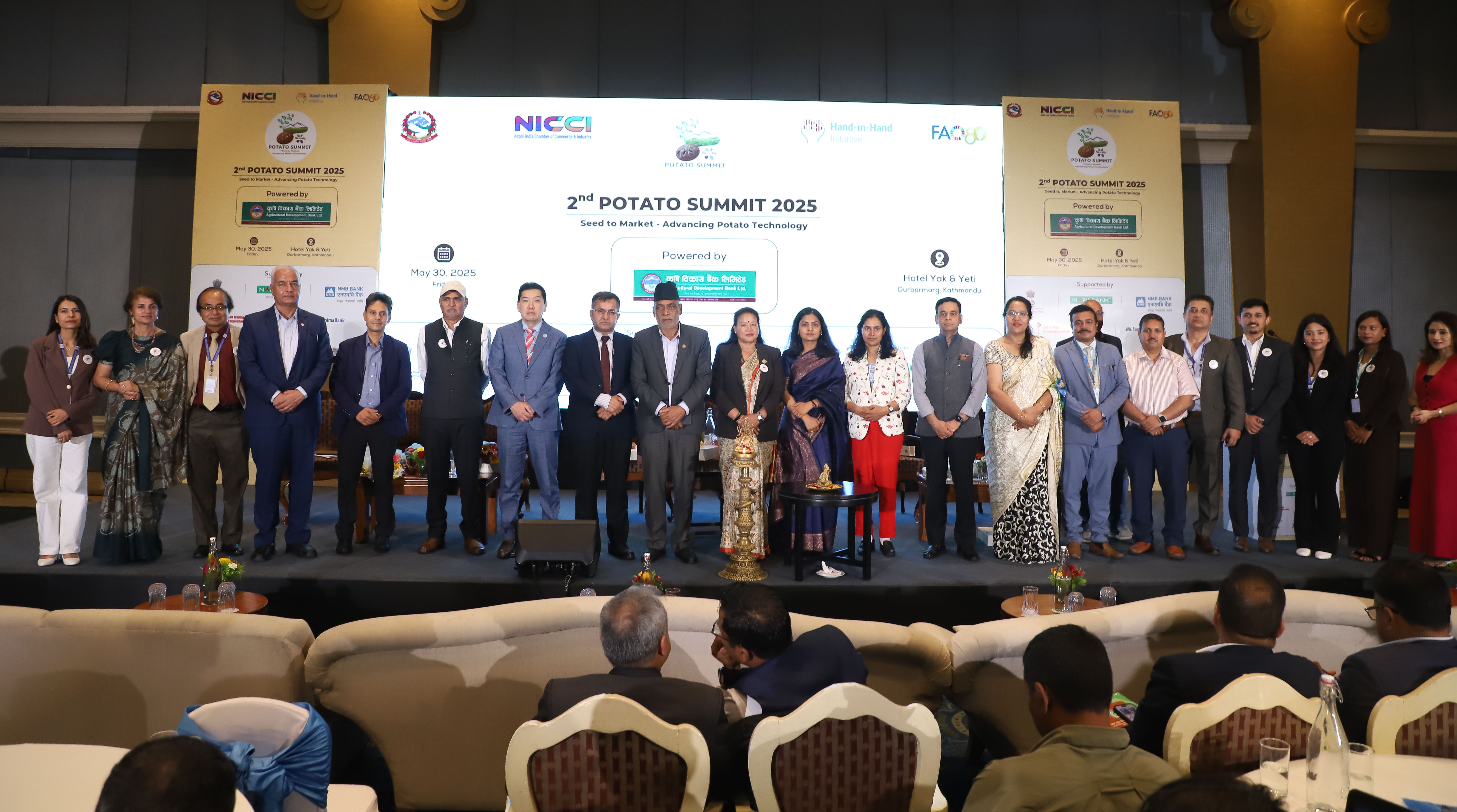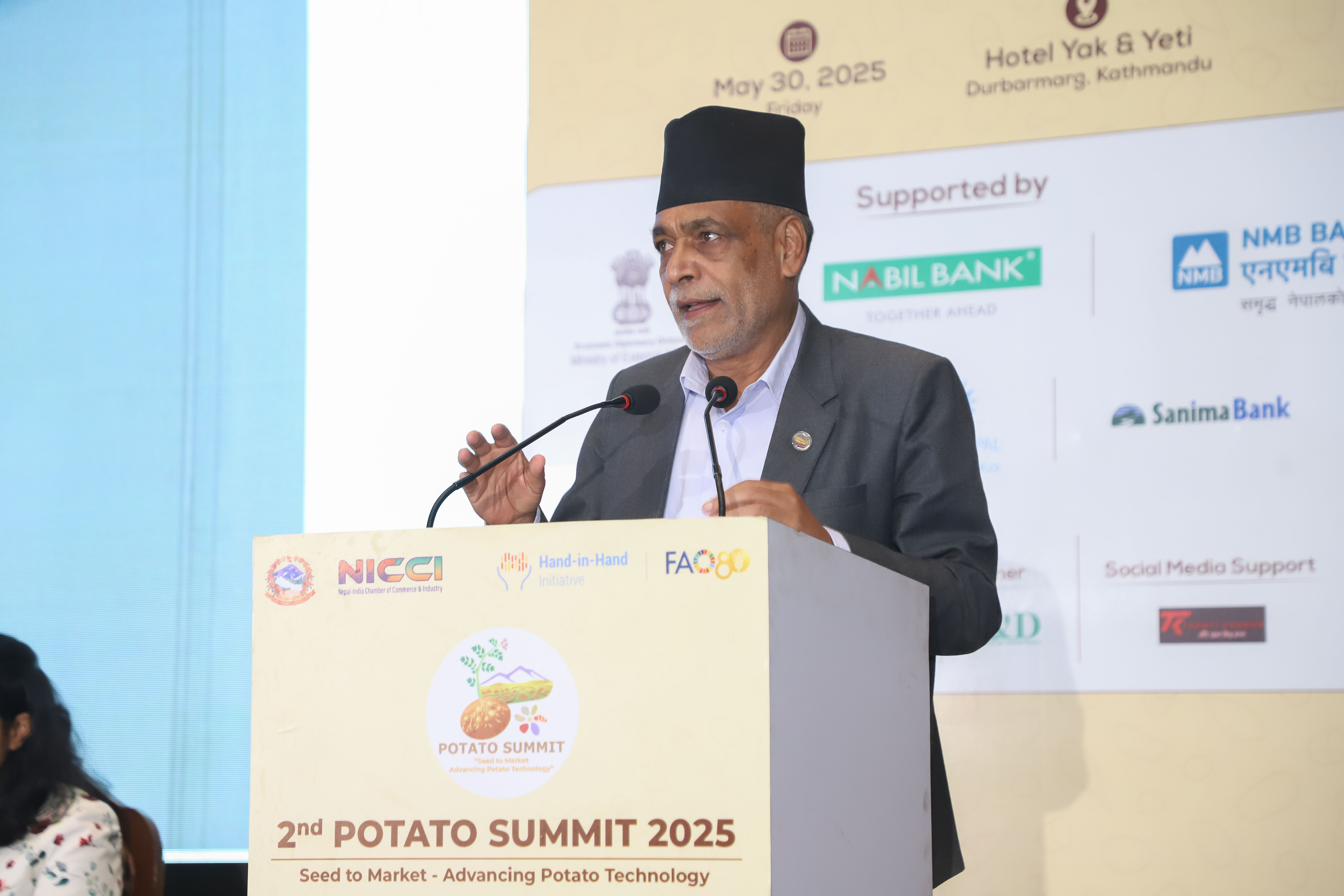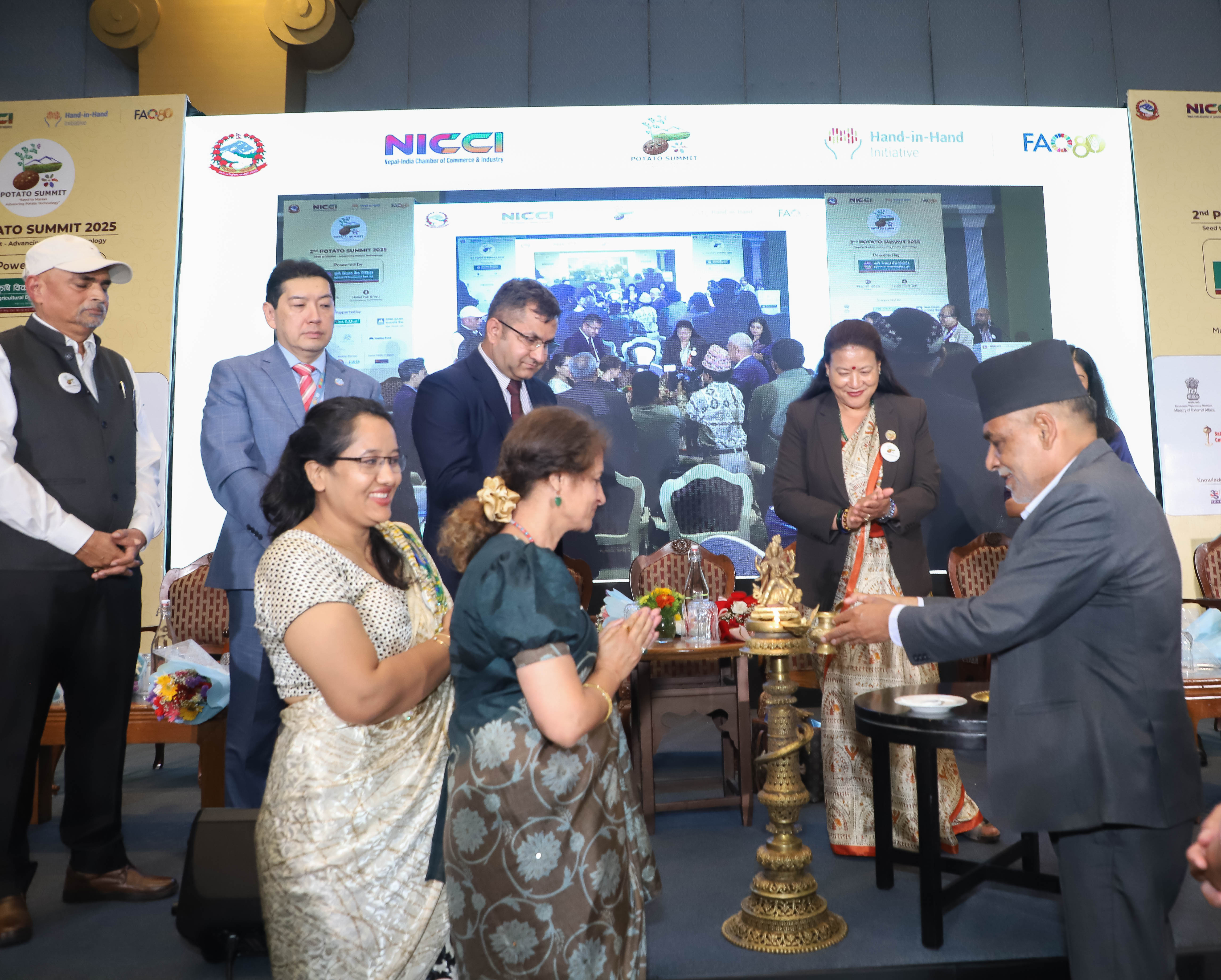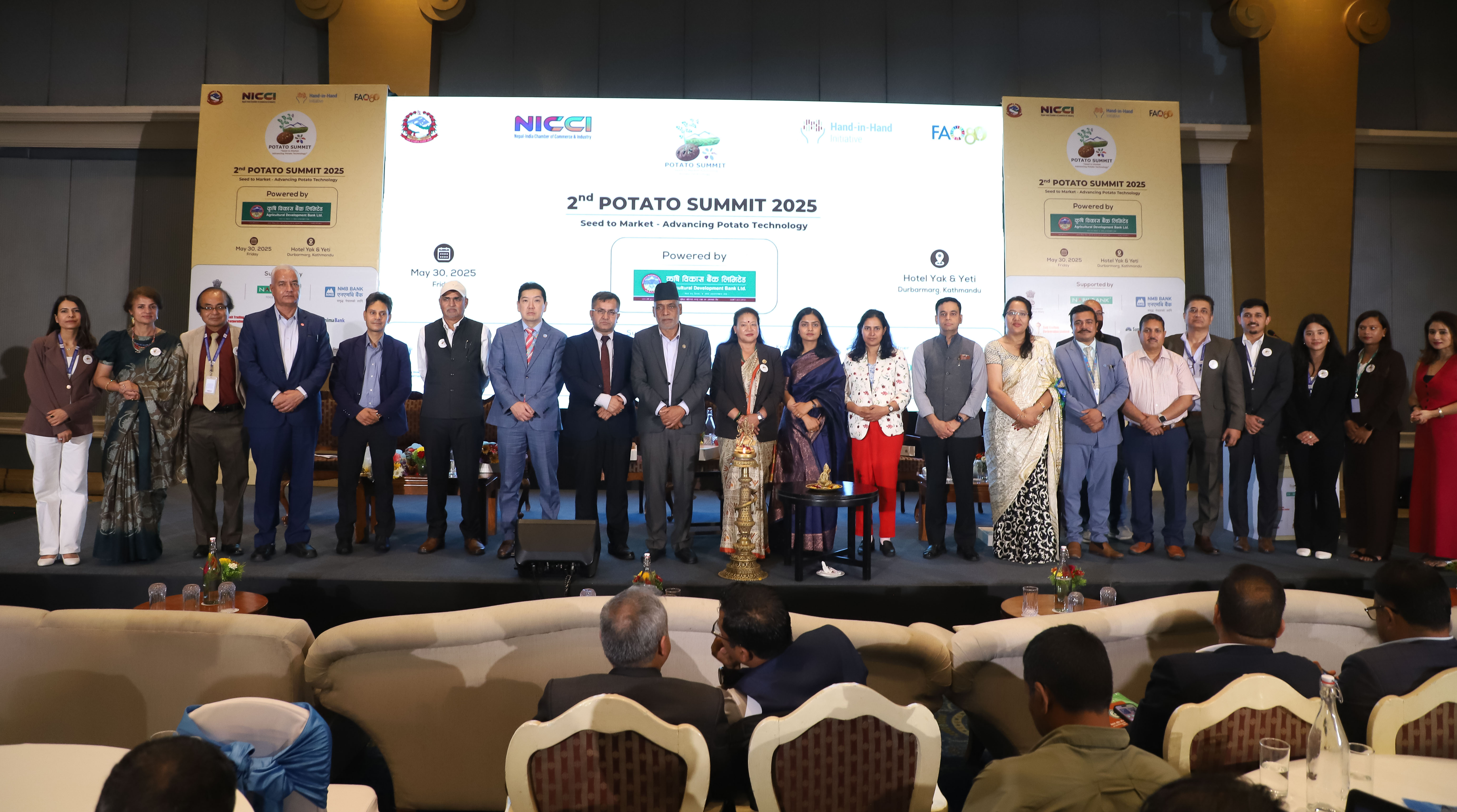KATHMANDU, May 30:The Second Potato Summit 2025, organized by the Nepal-India Chamber of Commerce & Industry (NICCI) in collaboration with the Ministry of Agriculture and Livestock Development (MoALD) and the Food and Agriculture Organization (FAO), was held at Hotel Yak & Yeti to discuss strategies for enhancing Nepal's potato industry. The summit focused on seed value chain optimization, market development, processing opportunities, and private sector engagement.
Minister for Agriculture and Livestock Development Ram Nath Adhikari inaugurated the summit and delivered the keynote address. He expressed the government’s commitment to strengthening the potato sector through policy reforms and investment incentives, particularly in processing technologies.
Minister Adhikari highlighted that Nepal currently has 16 potato zones and 2 super zones aimed at improving productivity and farmers' livelihoods. However, there is growing demand from farmers for more such zones. He stressed the need to identify and promote suitable potato seed varieties with commercial value, noting the importance of technology and research in this effort.
Kusum Devi Thapa, Chairperson of the Agriculture, Cooperatives, and Natural Resources Committee of the Federal Parliament, emphasized the potential of potato processing in adding value to the crop. She encouraged investment in technologies to diversify potato-based products and expand market opportunities both domestically and internationally.
Eating junk food is bad for health!

Dr Govinda Prasad Sharma, Secretary of MoALD, shared that the ministry has begun implementing the recommendations of the First Potato Summit held last year. He noted ongoing efforts to address remaining issues, particularly in market development. The ministry, in partnership with FAO, is prioritizing highland potato cultivation. He also mentioned initiatives to improve market infrastructure and create direct links between farmers and consumers to improve market access.
Ken Shimizu, FAO Country Representative for Bhutan and Nepal, stressed the importance of understanding market trends and consumer preferences. He noted that FAO’s Hand-in-Hand Initiative (HiHI) has identified highland potato as a priority commodity, with the goal of catalysing investment and targeted interventions for inclusive rural development. This aligns with Nepal’s broader goals of enhancing food and nutrition security, promoting sustainability, and fostering resilience.
Garima Nautiyal, Second Secretary (Development Partnership and Political) at the Embassy of India in Kathmandu, highlighted the value of international cooperation in enhancing seed quality and managing diseases. She affirmed India’s commitment to supporting Nepal’s seed sector through knowledge sharing and technical assistance.
Keynote speaker SP Singh, Vice President – Supply Chain at Technico Agriscience Ltd. (a subsidiary of ITC), shared insights from India’s two-decade-long journey in seed potato development. He noted that India has developed around 65 potato varieties suited to diverse micro-markets, helping it become the world’s second-largest potato producer. India, once an importer of potatoes, now exports to 37 countries.
Ravi Kumar Rayavaram, Vice President of NICCI, stressed the need to improve seed quality and accessibility. He called for collaborative efforts to overcome challenges in the seed value chain and ensure that farmers can access high-quality seeds at affordable prices.
Sunita Nhemhaphuki, CEO of 3S Foundation and Knowledge Partner of the Potato Summit 2025, delivered the vote of thanks. She acknowledged the contributions of all stakeholders and reiterated the importance of private sector engagement in driving innovation and investment throughout the potato value chain.
Experts at the summit discussed the adoption of improved seed varieties, the crucial role of cold storage in reducing post-harvest losses, and the need for targeted financing to strengthen the potato value chain. During the Q\&A session, participants stressed the importance of accessible credit for farmers and entrepreneurs to invest in modern equipment, processing facilities, and mechanisation.
A panel discussion focused on the role of local governments in enhancing the potato value chain at the grassroots level. Representatives shared community-based initiatives and support mechanisms to improve production and marketing. The dynamics of Nepal’s potato market were examined, including supply chain challenges and the need for efficient marketing systems to ensure fair prices for both producers and consumers.
The summit also highlighted the need to promote crop insurance as a risk-reduction tool in potato farming. Insurance can protect farmers against losses due to pests, diseases, and climatic events. The role of financial institutions in supporting the sector through loans and infrastructure investment was also underscored, with emphasis on scalable agribusiness models and strategic investments in processing, storage, and marketing to boost the competitiveness of Nepal’s potato industry.







































